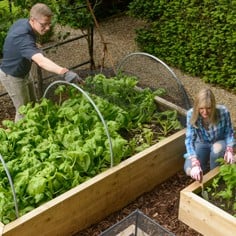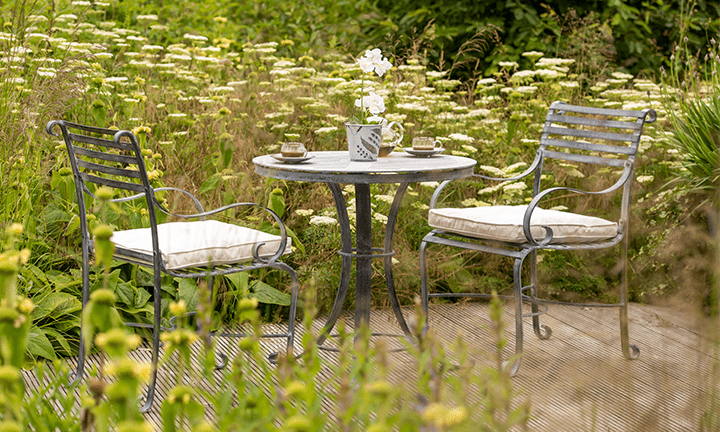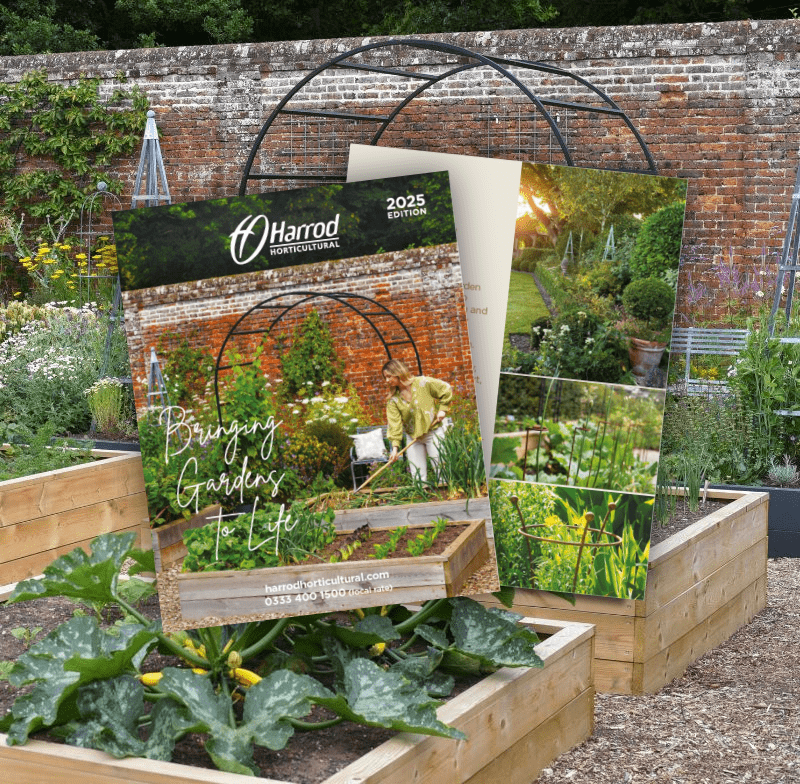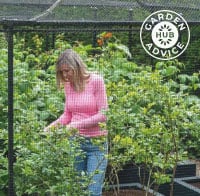KITCHEN GARDEN UPDATE JULY 2009
July is a month of plenty; green tomatoes turn a welcome rosy red (or yellow, or stripy, or green, or even purple if you choose), soft fruits drip from canes or hang like jewel clusters from bushes. Lush Squashes and Courgettes take over the beds, cut them often enough though for they will just give and give.
Those clever and well kitted out individuals who were quick off the mark in winter will have Aubergines and Peppers too. For the  first time here in the garden harvesting can take as long as all the other daily chores to do round the garden put together. Now there are a few words that strike fear into a gardener’s heart, this is one of them.....
first time here in the garden harvesting can take as long as all the other daily chores to do round the garden put together. Now there are a few words that strike fear into a gardener’s heart, this is one of them.....
Infest v. be numerous or troublesome in (a place).
All of us gardeners have suffered with this particular verb at some time or another; it is an intrinsic part of the nature of a garden. If we are fortunate then nature will rally the allies and the problem will be sorted soon enough in a non invasive way.
Hoverflies will, if given access, populate your aphid ridden Aubergines. Ladybirds will hide in the crevices of your greenhouse walls to emerge the next season to munch those pesky bugs. Spiders will dent the numbers of many pests by casting their intricate traps over leaves, round stems and staging. Tiny wasps colonize exacting a truly hideous revenge that even the most beleaguered gardener could not have dreamt up, finishing them off and leaving disfigured bloated bug corpses on the undersides of leaves.
You can witness this drama on a daily basis in any garden or green house, big or small. Tiny worlds full of life and indescribable horrors, true microcosms in every corner! Nature will find her own balance “but all in time” and us gardeners are an impatient bunch who wander the gardens wringing our hands at twisted misshapen foliage and sooty moulds. If only we could have things our own way!
The good news is that we can lend a helping hand; Harrod Horticultural stocks a range of biological controls, sprays and barriers so we can bolster nature’s best efforts but.... observation is the key. What is the problem? Is it Aphid, Whitefly or Vine Weevil? Is it a localised matter or spread throughout a large space? Are there already hidden allies close at hand under leaves, please do look long and hard before you spray, there is a horrible sinking feeling that comes when after spraying a plant you notice the shiny red and black jacket of our most well known of bug munchers peeping out from behind a bud. It’s not just the adults you need be aware of; do you know what ladybird or hoverfly larvae look like? Take the time to educate yourself a little, it really pays dividends. 
If you are still unsure after taking a long hard look, if you are still scratching your head or have problems that are still unsolved... good news! This comes in the shape of Julian our new pest expert who is now available to answer queries and questions. On a recent visit to the garden he offered great advice, educated me on the identity of several friendly critters that I may have missed and, I am pleased to report, was impressed too at the measures already taken in the garden.
Observation is what leads to the discovery of a very destructive critter spotted recently in the Kitchen Garden and this time luckily the treatment was obvious and to hand. The Spotted Asparagus Beetle may be a handsome little critter, dressed as he is in his spotty jacket and bright colours, but he and his very ugly offspring can do tremendous damage in a matter of days. We have a separate perennial bed here at the Kitchen Garden and every year we have been adding to our collection of Asparagus crowns therein. Stephanie loves asparagus with a passion and it is a tough job getting her to wait until the crowns mature enough to cut spears without over stressing the plant. Now that being said we had a couple of bad years for the crop, fewer and fewer spears were appearing, I do not like to be beaten and had taken advice from professionals and followed instructions to the letter, alas all to no avail.
If only I had been more observant, I would have realised that the handsome little beetles that I found every now and again about the garden were really little devils that have been causing the Asparagus ferns of late summer to splinter and die before getting to unfurl and proliferate. Well not this year, I have seen their dastardly deeds and taken the right course of action. Spraying in this instance is the only thing to do as these critters can have three separate generations in a season and our Asparagus will not take another bashing. So to the potting shed for a very useful standby (Insect Killer) spray to have
I must say that although I do prefer to live and let live there was something very satisfying in spraying those plants. I am sure there was a time when July was a settled month, warm... bar the odd summer storm or two. Do you remember the seasons of old too? Or is this just my rose-tinted glasses? Please just do not tell me that things are getting warmer all over the world, because here on the Suffolk/ Norfolk border they ain’t boy! This petulant weather can play havoc in a greenhouse as a watering routine cannot be managed and it becomes as and when with dull days giving way to hot dry spells and then back all too soon to rain again. So, to set up irrigation systems can be a fiddle as we do not want plants sitting in water or going dry, anything we put in place needs to be quick and easily adjustable or it is just not worth it as you spend so long messing about with taps and gizmos you might as well do it by hand. Step forward the Karcher Sun Watering Timer, it’s so simple to set up and easily adjusted in minutes.
Schools out and as I am a Mum, this time of year takes me out of the Kitchen Garden. I need to rely on others for watering my vegetable babies, anything that can ease the burden is welcome (as Stephanie will also testify) and this Timer can be used with your existing irrigation equipment as it has a simple tap/hose fitting! Well the Leek bed has superseded the alliums, the Broad Beans are over at the end of the month and as usual it’s all change in the Kitchen Garden.
Try to keep up by re-sowing those salads and leaves to fill the gaps. Do not forget the Brassicas for over winter and any autumn-sown or planted bed fillers may need to be ordered promptly this month to ensure availability of your supplies. Nets are essential this time of year as Cabbage Whites are in abundance and will strip your plants via their hungry offspring... A handy tip! Make sure you use Butterfly mesh and that leaves do not touch the net as the butterfly will land and lay straight through!
Here’s hoping for some calmer weather... Happy holidays!

























